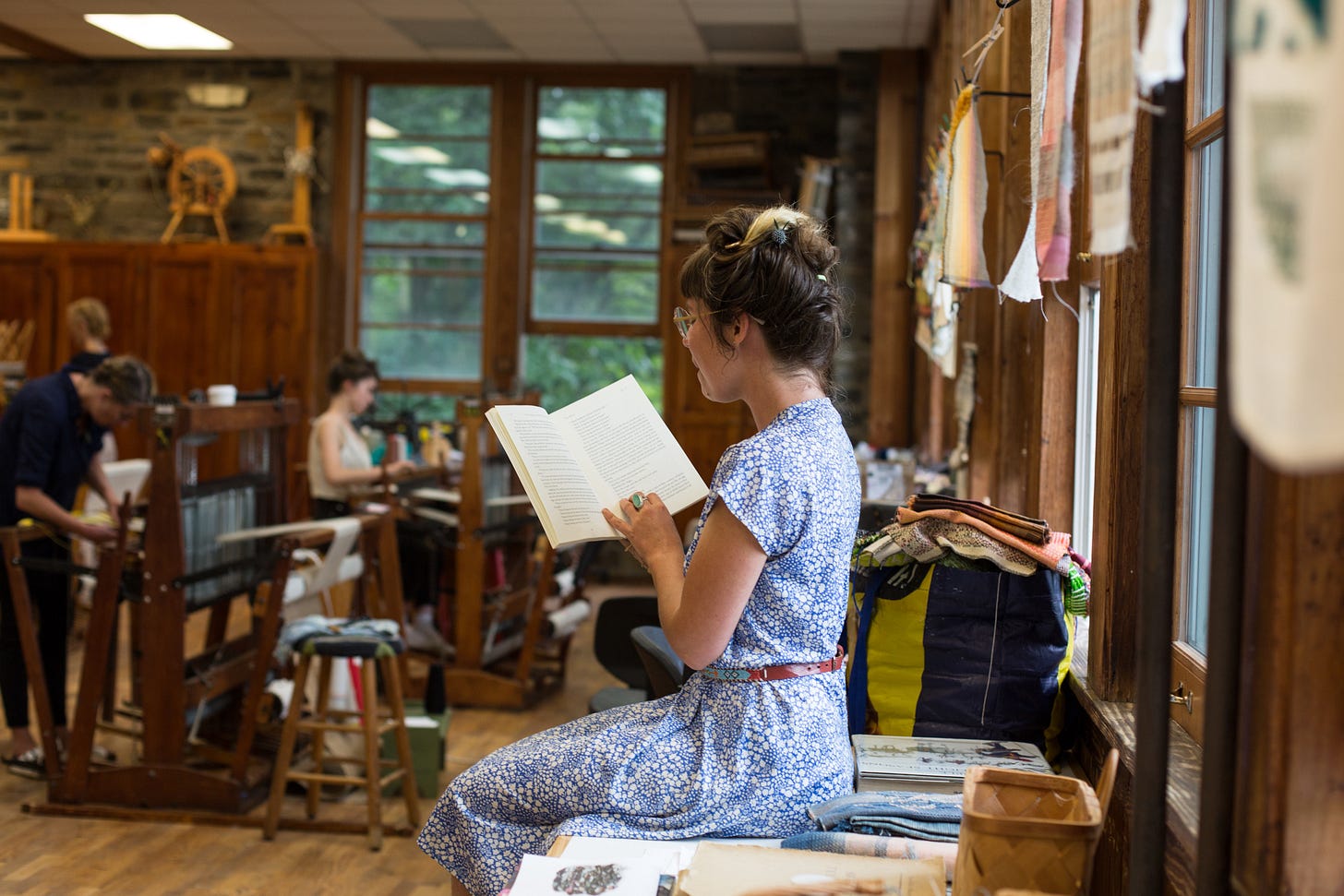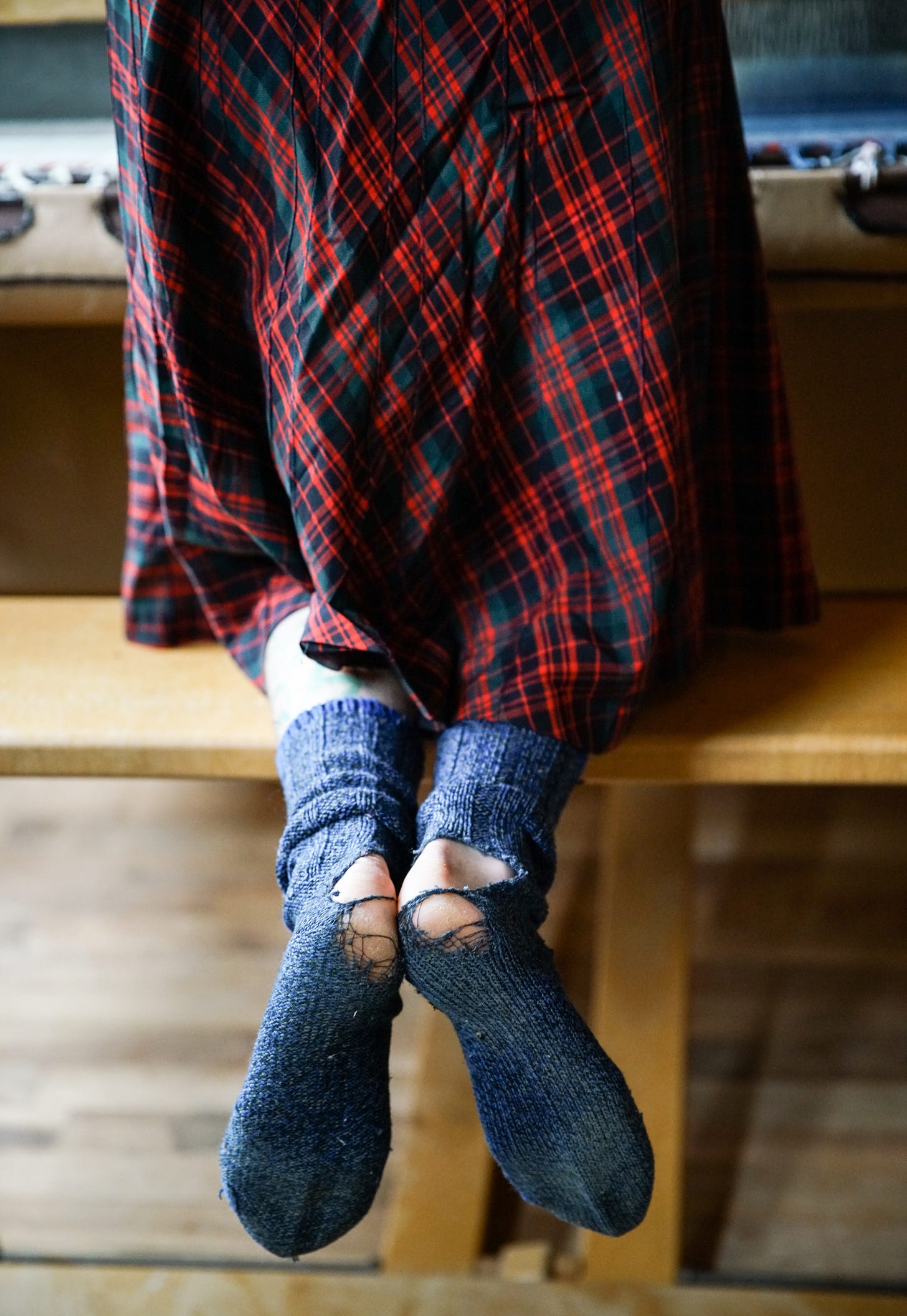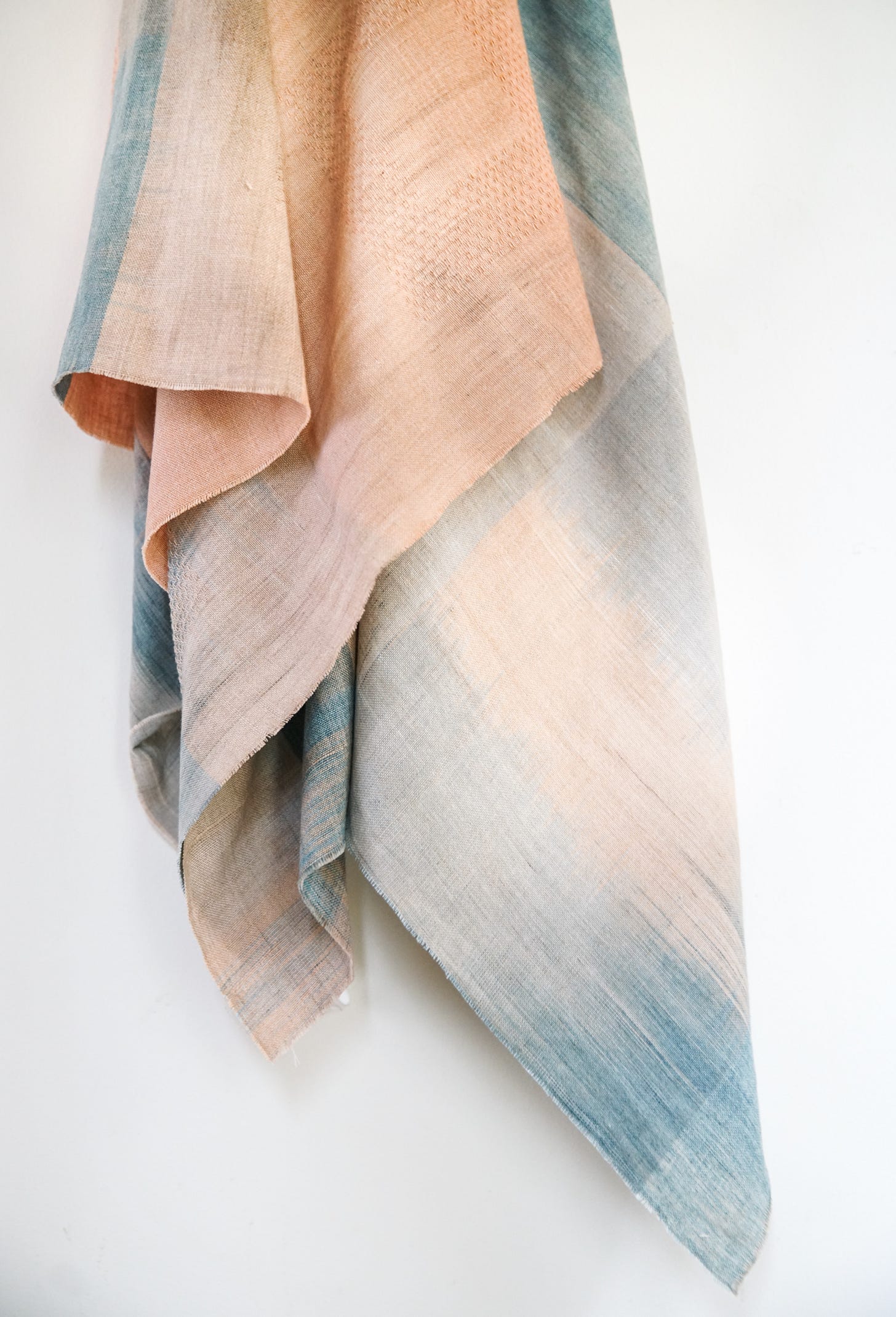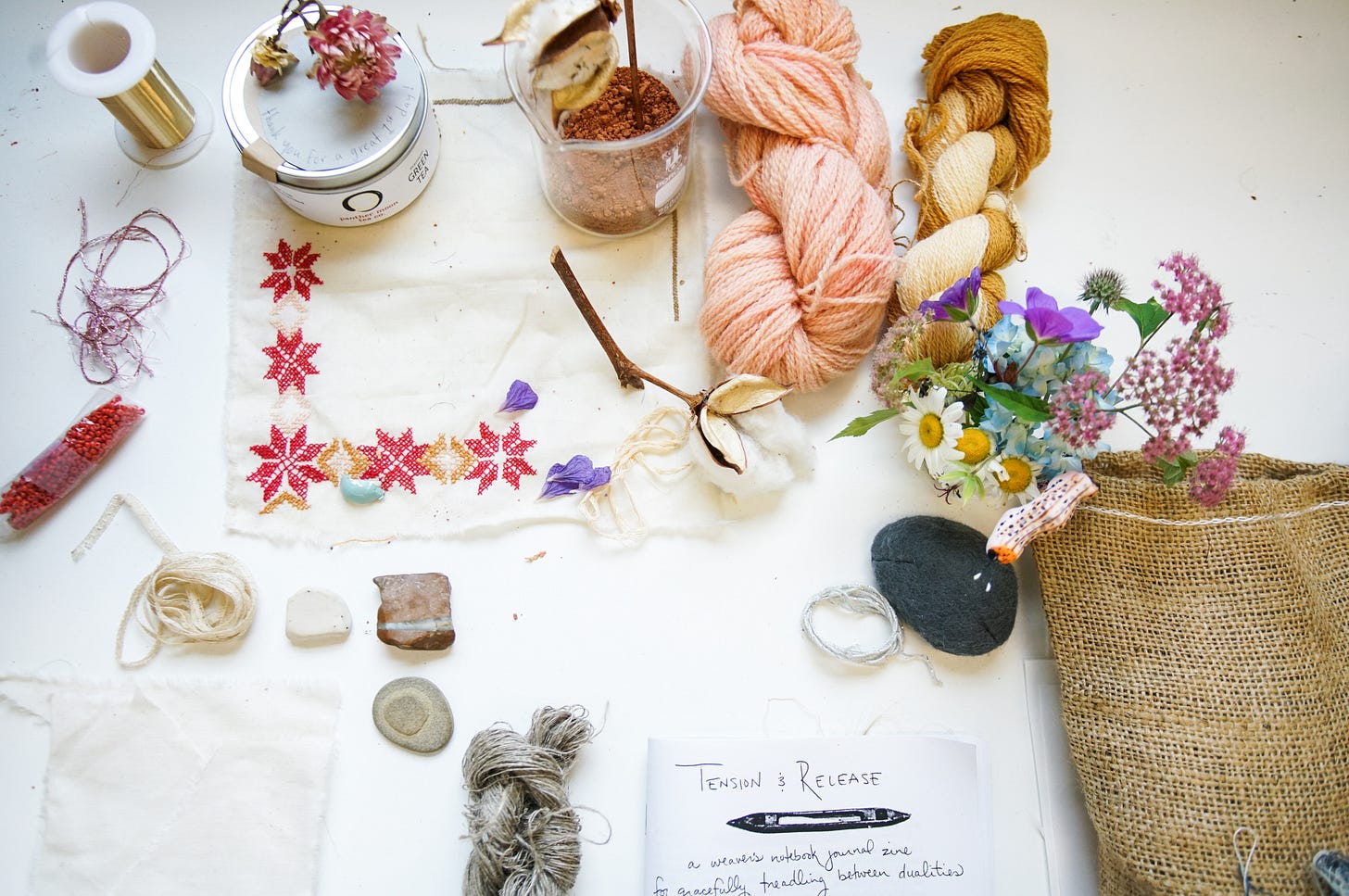Penland is a residential craft school in rural NC that teaches short term workshops. Jess had been there in multiple capacities over several years, but in 2019 she was there teaching a weaving class. Her teaching methods infuriated a lot of students who sought rigid weaving rules and precise dye formulas.
The class was 8 weeks and the first week Jess wouldn’t allow anyone to even touch the looms in order to “create longing.” Instead we did things like “follow the threads of our attention” as we each were assigned to follow and re-spool a single thread through weedy fields, across campus and through the brushy woods for hours at a time. Jess’s teaching methods were riddles that lead sometimes to answers and more often to questions.
She embraced duality and contradiction with every step of her wiggly and winding methods. She made small things special and did things like read to us aloud while weaving. When she taught us at Warren Wilson College, she led us in a candlelit “light weaving ceremony,” had us hauling looms in trucks at 4 am to the site of black mountain college for us to weave to the sunrise. Unusual experiences and ceremonies were always prioritized as much as the actual craft instructions. She taught us songs about weaving and we sang together. Jess laughed a lot and things always felt light and heavy at the same time, joy-filled and reverent.
We were at Penland during her birthday and she asked for a “crop top ball” for her shared party. Often she would say to me out of the blue “I love today” with a beaming smile on her face. She was really in her prime when she was teaching.
She rejected the idea that there was one right way to do something. She might have opinions about a good way to do something but she left a lot of openendedness for people to understand there were endless possibilities to any one task. Even in weaving, which could be interpreted as a somewhat restricted, straightforward process.
Jess held deep reverence for time and would often do already slow tasks even slower. People, life, animals, plants, boredom, the mundane were understood as essential parts of the work at hand. She instilled trust in her students in a way that always surprised me, the conviction of her belief could unlock so much.
She emphasized the importance of failure in her teaching. I think she did that as a way to free students from the fear of attempting. So much fear of being bad at something in students. It really clogs peoples brains and makes them freeze up. If being bad at something was ultimately the goal then people can feel safer knowing they can take more risks in their process. We love failure, we were actually TRYING to fail!
Jess modeled failure well, making grand attempts and sometimes getting partial buy-in from students. Man, did she fail so beautifully. It inspired me to watch her continue, adjust and stay curious through the process of iterating the way she taught, and the ways she connected to people and her work.
I’ve never had another teacher like Jess. You learned so much just from being around her. Literal worlds were opened, seemingly disparate worlds collided. Portals and thresholds and parades and riffs and experiments and power and play. She loved really fully with her presence and had a way of making others curious, of making them scheme with her. I know the people who love Jess are left now trying to pick up the threads of how to continue the spirit of her dreaming and scheming. The energy behind that question, the urge she left in people is such a profound legacy to leave. We love you, I love today deeper because of you. Thank you is such an inadequate word here but until we riff a new and better language together - thank you Jess for what you’ve brought to all of us.
-K
Images: Rinne Allen







